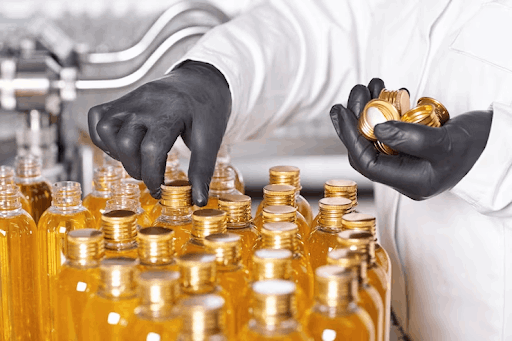Embarking on the journey of starting your private label alcohol manufacturing business is a thrilling endeavor that combines passion for spirits with entrepreneurial spirit.
Whether you’re envisioning your brand of craft beer, artisanal wine, or premium spirits, success in the competitive alcohol industry requires careful planning and strategic execution.
Here are key tips to guide you on the path to launching your private label alcohol manufacturing venture.
Market Research is Your North Star
Before diving into production, conduct thorough market research to identify trends, consumer preferences, and potential competitors. Understand your target audience and the unique selling propositions that will set your private label apart. This foundational research will inform your product development, branding, and marketing strategies.
Regulatory Compliance is Non-Negotiable
Navigating the complex web of alcohol regulations is a critical aspect of establishing a private label alcohol brand. Familiarize yourself with local, state, and federal laws governing the production, distribution, and sale of alcoholic beverages. Obtain the necessary licenses and permits to ensure compliance with regulatory requirements, protecting your business from legal complications.
Quality Matters – Invest in Exceptional Ingredients
The foundation of any successful private label alcoholic beverage manufacturer is the quality of its products. Invest in premium ingredients that align with your brand’s identity and resonate with your target market. Whether it’s sourcing the finest grains for whiskey or selecting exceptional grapes for wine, the quality of your raw materials directly impacts the taste and appeal of your private label.
Perfect Your Branding and Packaging
Your brand’s visual identity is a key element in attracting consumers and standing out on crowded shelves. Invest in professional branding and design services to create a distinctive logo, label, and packaging that convey the essence of your private label. Consider environmental sustainability in your packaging choices, as eco-friendly options resonate well with modern consumers.
Effective Marketing Strategies Set You Apart
Develop a comprehensive marketing strategy to create awareness and build a loyal customer base. Utilize digital marketing channels, including social media, to engage with your audience. Participate in industry events, tastings, and collaborations to showcase your products. Consider influencer partnerships and promotions to generate buzz around your private label.
Embrace Innovation and Adaptability
The alcohol industry is dynamic, with consumer preferences evolving and new trends emerging. Private label alcohol manufacturers help in Stay ahead of the curve by embracing innovation in your products, production processes, and marketing approaches. Be adaptable to market changes, and consider introducing limited-edition releases or collaborations to keep your brand fresh and exciting.
Implement Stringent Quality Control Measures
Consistency in product quality is paramount for building trust with consumers. Implement rigorous quality control measures at every stage of production, from sourcing raw materials to bottling and packaging. Conduct regular tastings and sensory evaluations to ensure that each batch meets your brand’s standards.
Financial Management is Key
Effective financial management is crucial for the sustainability of your private ,Beverage manufacturing companies. Develop a detailed business plan that includes startup costs, production expenses, marketing budgets, and revenue projections. Monitor your finances closely, and be prepared to adjust your strategy based on performance and market feedback.
Prioritize Customer Experience and Feedback
Create a positive customer experience by prioritizing customer service and actively seeking feedback. Encourage customer reviews and testimonials to build credibility and enhance your brand’s reputation. Listen to consumer preferences and use feedback to refine your products and marketing strategies, fostering a strong bond between your brand and its audience.
Conclusion
Launching a private label alcohol manufacturing venture is an exhilarating journey that demands a blend of creativity, business acumen, and dedication.
By conducting thorough market research, navigating regulatory landscapes, prioritizing quality, and implementing effective marketing strategies, you set the stage for a successful venture in the competitive spirits industry.
As you navigate the path to entrepreneurship, remember that each step contributes to the crafting of a lasting legacy in the world of spirits. Cheers to your entrepreneurial spirit and the success of your private label!

